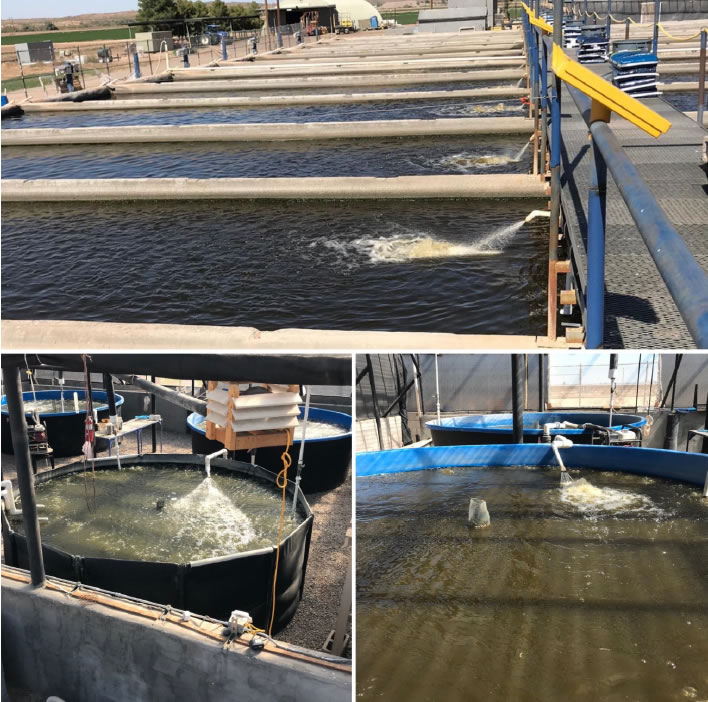A Guide to Building a Successful Career in Aquaculture
Prof. Aécio D’Silva, Ph.D
AquaUniversity
Fish farming is an exciting and challenging field that offers ample opportunities for individuals interested in sustainable food production, environmental conservation, and business development. As the demand for seafood continues to grow worldwide, the aquaculture industry is expected to expand rapidly in the coming years, creating a wide range of career paths for aspiring fish farmers. Whether you are a student, a career changer, or a seasoned professional, this guide will help you learn how to become a fish farming expert and achieve your goals in this dynamic industry.
Become a Fish Farming Expert – Fish farming, also known as aquaculture, is the practice of cultivating fish, crustaceans, mollusks, and other aquatic organisms for food, recreation, conservation, or research purposes. Fish farming is a critical component of global food security, as it provides a sustainable and affordable source of protein for millions of people worldwide. According to FAO (2022), with 225 Member States and territories reporting some trading activity of fish and aquaculture products (1) in 2020, aquatic food is still one of the most traded commodities worldwide. In 2018 this sector reached a record high production of 67 million tons, worth USD 165 billion. Moreover, fish farming has numerous environmental benefits, such as reducing overfishing pressure on wild fish stocks, conserving aquatic habitats, and mitigating climate change impacts. Additionally, fish farming is a growing industry that generates significant economic opportunities for entrepreneurs, investors, and employees.
Essential Skills and Knowledge for Fish Farming Experts
To become a successful fish farming expert, you need to possess a combination of technical, practical, and soft skills, as well as a deep understanding of the ecological, economic, and social aspects of aquaculture. Some of the critical skills and knowledge areas that you should acquire include:
Biology and ecology of fish and aquatic organisms: You should have a solid understanding of the anatomy, physiology, behavior, and life cycle of the species you intend to farm, as well as the interactions between the species and their environment. This knowledge will help you design and implement appropriate culture systems, feed and nutrition programs, disease prevention and treatment measures, and environmental management practices.
Aquaculture technology and engineering: You should be familiar with the various types of aquaculture systems, equipment, and tools used in fish farming, such as ponds, tanks, cages, pumps, filters, aerators, and sensors. You should also be able to troubleshoot technical problems, perform maintenance and repairs, and optimize production efficiency and quality.
Business and financial management: You should have a basic understanding of business principles, such as marketing, sales, finance, accounting, and legal compliance, as well as the ability to develop and implement business plans, budgets, and strategies. You should also be able to analyze market trends, identify customer needs, and adapt to changing market conditions.
Communication and teamwork: You should possess excellent communication skills, both verbal and written, as well as the ability to collaborate and coordinate with a diverse range of stakeholders, such as colleagues, clients, suppliers, regulators, and communities. You should also be able to lead, motivate, and manage teams of workers, volunteers, or contractors.
Education and Training Options for Fish Farming Experts
To acquire the necessary skills and knowledge for fish farming, you can pursue various education and training options, depending on your background, interests, and goals. Some of the most common pathways are:
Formal education: You can enroll in a degree program in aquaculture, fisheries, marine biology, agriculture, or related fields at a college or university. This option provides you with a comprehensive and structured curriculum that covers theoretical and practical aspects of fish farming, as well as opportunities for research, internships, and networking. You can earn an associate, bachelor’s, master’s, or doctoral degree, depending on your level of education and career aspirations.
Vocational training: You can attend a vocational or technical school that offers specialized courses or
Conclusion: Becoming a fish farming expert requires a combination of technical, practical, and interpersonal skills, as well as a deep understanding of the ecological, economic, and social aspects of aquaculture. Whether you are interested in starting your own fish farm, working for an established company, or pursuing a career in research or advocacy, there are many paths to success in this dynamic and growing industry. By developing your skills and knowledge through education, training, and hands-on experience, you can become a leader in the field of fish farming and make a positive impact on the global food system, the environment, and the economy.
References:
Food and Agriculture Organization of the United Nations. (2022). The State of World Fisheries and Aquaculture 2022. Rome.
National Oceanic and Atmospheric Administration. (n.d.). Aquaculture. Retrieved from https://www.noaa.gov/education/resource-collections/aquaculture
World Aquaculture Society. (n.d.). Career Center. Retrieved from https://www.was.org/career-center.aspx


